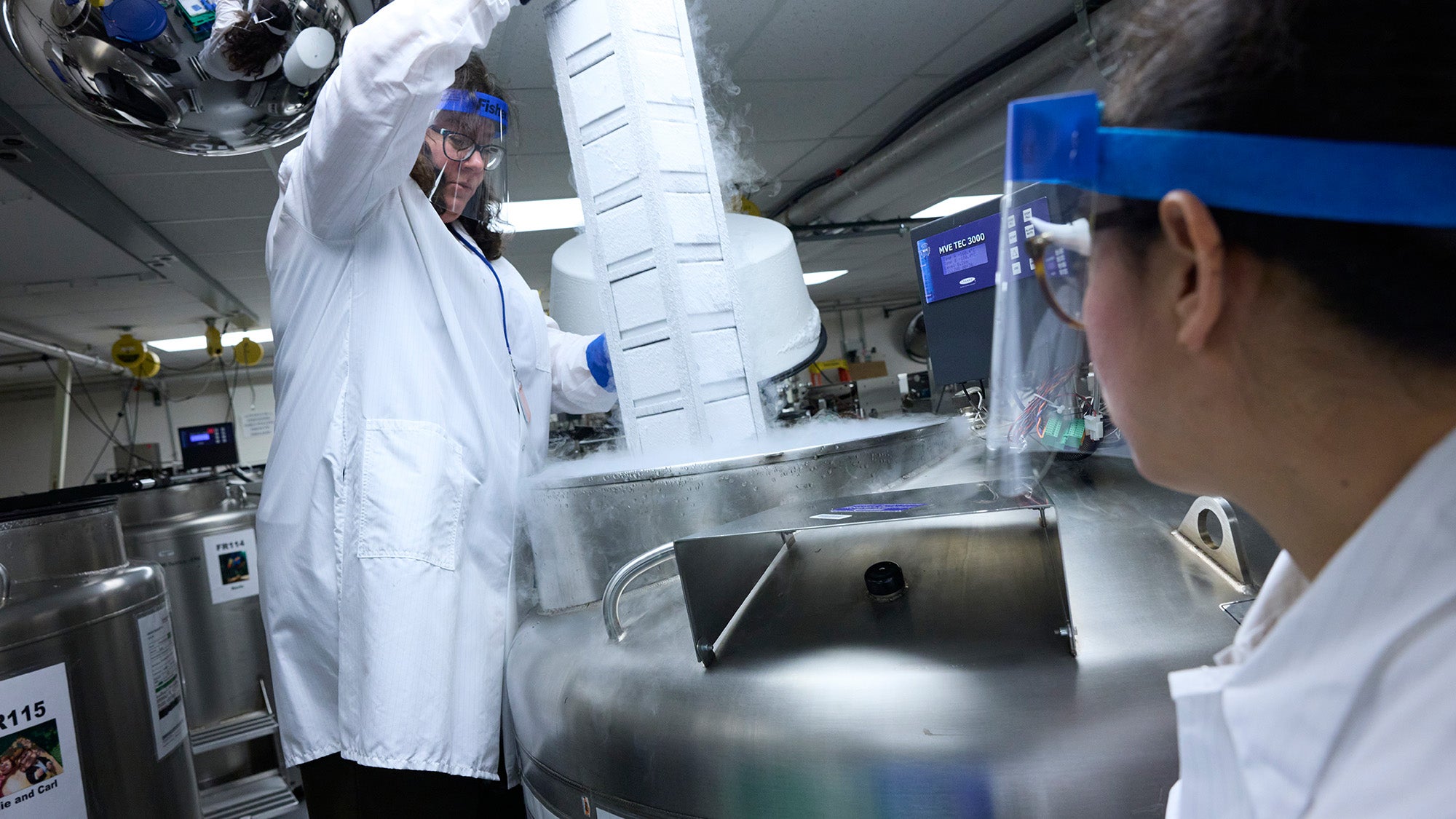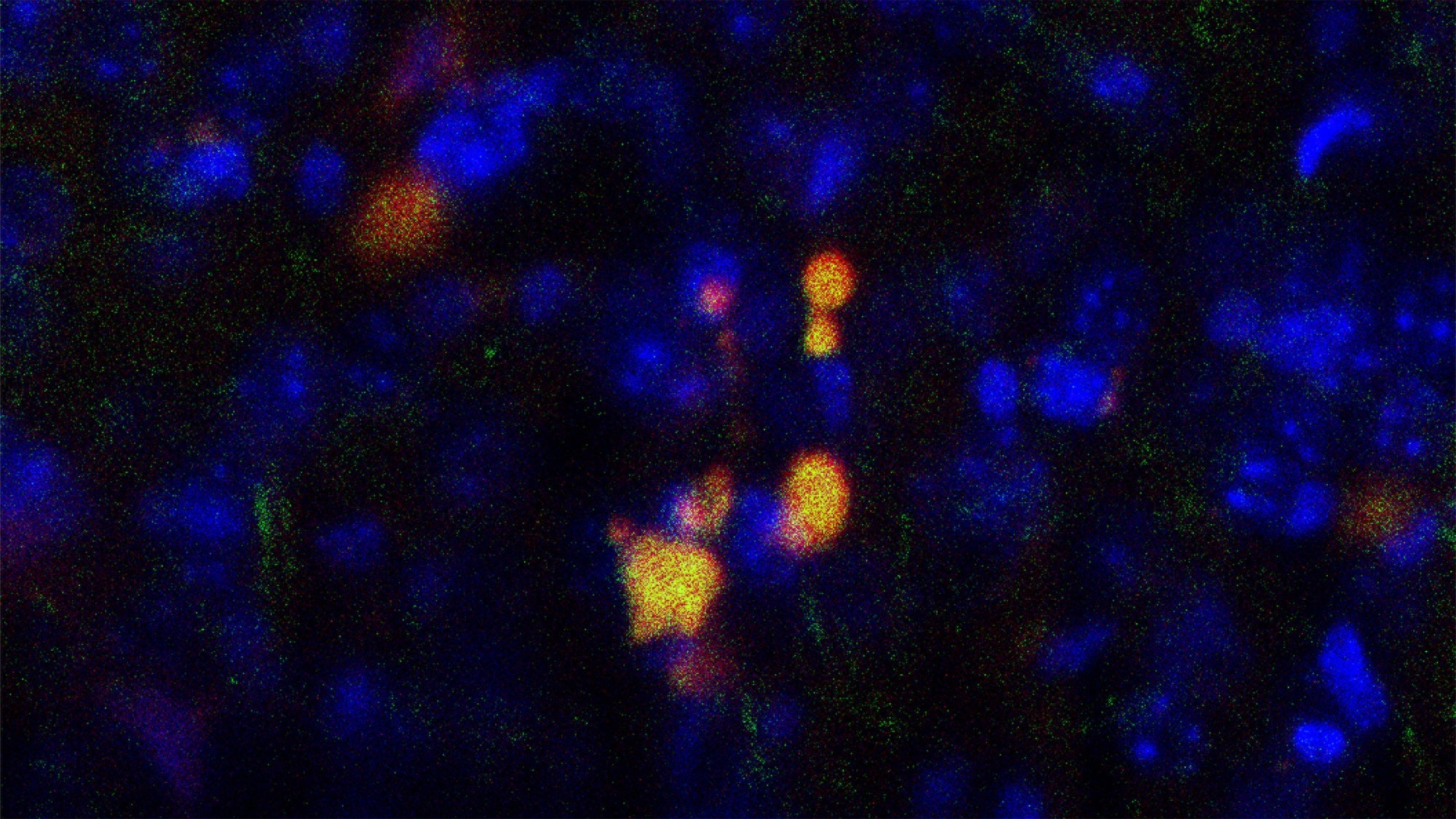Biological samples linked to groundbreaking research at risk from funding cuts

Researchers at Harvard T.H. Chan School of Public Health and their colleagues around the world rely on the thousands of biological samples collected from participants in the Nurses’ Health Studies and Health Professionals Follow-Up Studies. But funding for maintaining the dozens of giant freezers holding these samples will be halted due to cuts to Harvard University by the Trump administration—putting decades-long work in understanding chronic disease risk in jeopardy.
For nearly 50 years, the biological samples and health data collected for these studies have led to major scientific advances, including identifying the dangers of trans fats, and links between obesity and alcohol and breast cancer, and smoking and heart disease.
Support Harvard Chan School
Every gift contributes to our mission of building a world where everyone can thrive. To learn more about how you can support the School, please contact giving@hsph.harvard.edu.
“We are scrambling to try to protect the samples and the data we have,” Walter Willett, professor of epidemiology and nutrition, said in a May 8 CNN article. “We can’t last more than a few weeks, a couple of months, depending on which aspect of the study we’re talking about. But we’re on a short timeline now, unless we get some additional funding.”
Without funding to maintain the samples—which include DNA, blood, urine, stool, and tissue—a number of exciting new research possibilities will be lost, Willett said. For example, some early study participants are reaching 100, providing a unique opportunity to look at how decades of behaviors influence healthy aging.


